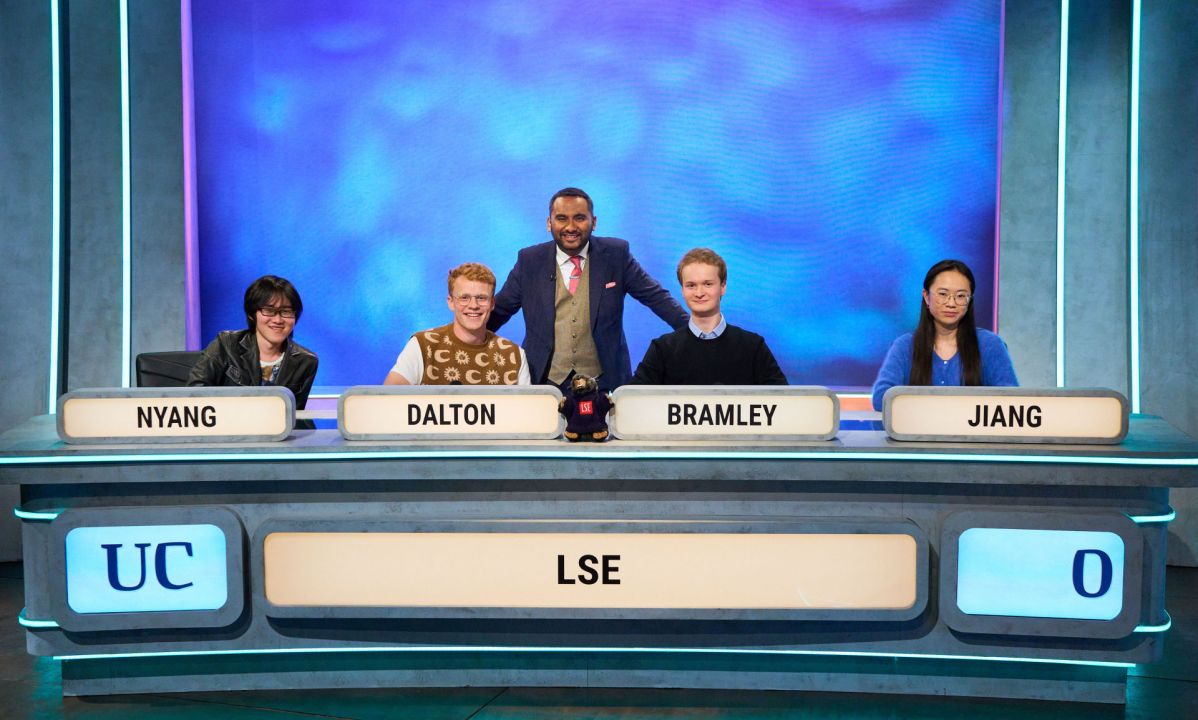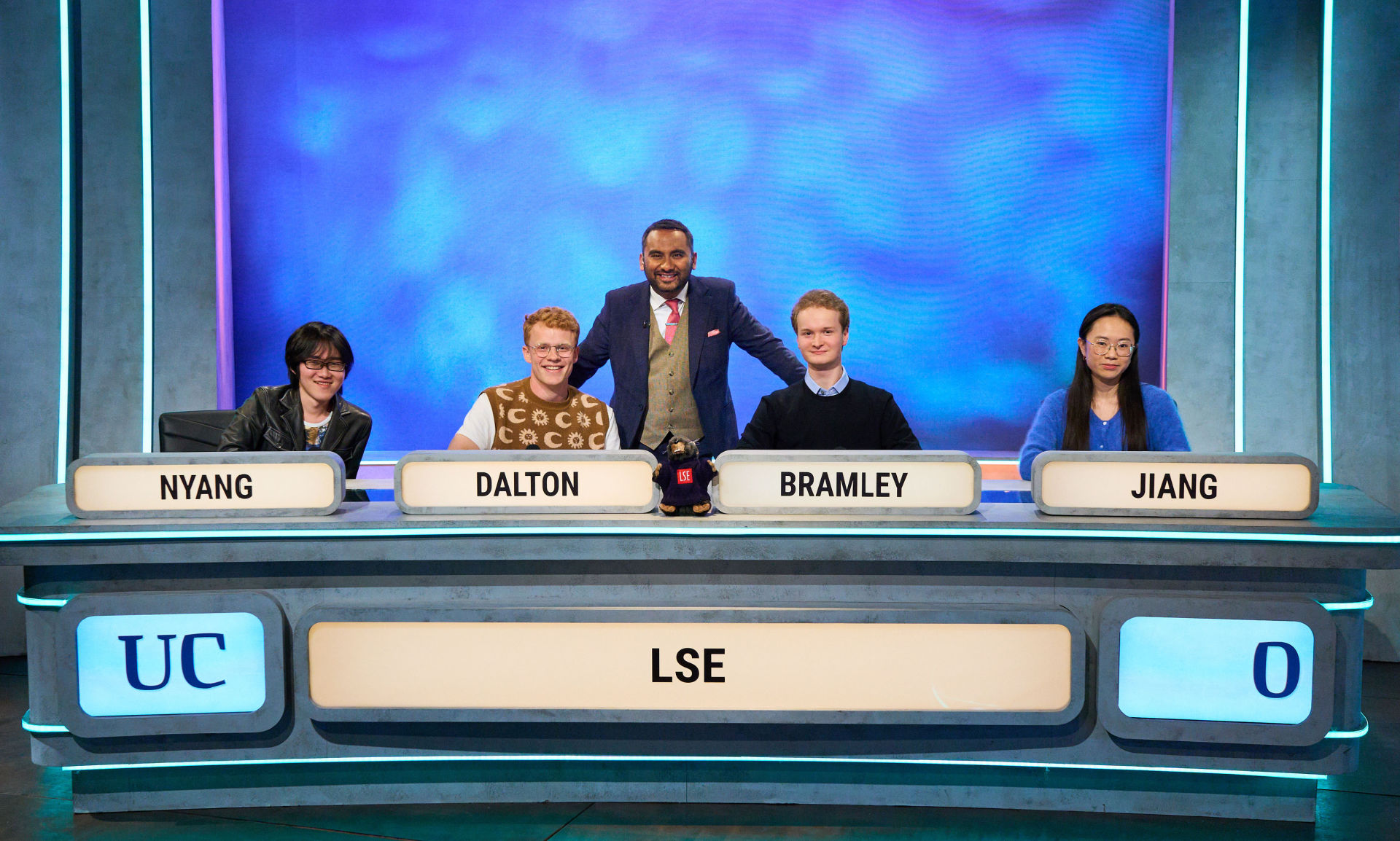Universities today are well-known as places where progressive, hyper-liberal politics predominate. It’s only logical, therefore, that the cry for equality and diversity should now extend to the television programme University Challenge.
Despite the current series witnessing the second-largest proportion of female competitors in the programme’s history – with 34 female contestants representing a 31 per cent of its total – and the gradual disappearance of all-male teams, this is not sufficient progress for some campaigners.
But what if television, or the make-up of the workplace, actually does reflect nature, not nurture?
Liz Tucker, former chair of Women in Film and Television, said a 31 per cent representation was still not good enough, bearing in mind that almost 57 per cent of undergraduate students are women. ‘I’ve watched episodes in recent years when there have been no women,’ she told the Times. ‘You wouldn’t expect to see such a discrepancy in other environments, so what does it say? It suggests that women are less able.’
On the contrary, we fully expect to see discrepancies between the sexes in many arenas everyday life. No one is taken aback by the over-representation of women as teachers in primary schools, as midwives, therapists or librarians. Men and women tend to have different interests and gravitate towards different lines of work. We see this in gestation in universities themselves, especially the sciences, with women more likely to opt for biology and men for physics.
Progressives will always retort that such a state of affairs reflects nurture and societal bias, rather than inherent difference between the sexes. That’s why they place such importance on TV shows in ‘challenging stereotypes’, in being agents of change. As Tucker adds: ‘We know that television is very important in presenting role models.’
But what if television, or the make-up of the workplace, actually does reflect nature, not nurture? Some feminists, once so vociferous in their belief that women are ‘created not born’, now agree with conservatives that biology is important and determines one’s place in society. And even left-liberals, with their morbid obsession with ‘toxic masculinity’, tacitly concede that men are fundamentally different from women, that men are more prone to aggression, nastiness and unstable extremes.
It’s this very innate male character that surely lies behind the discrepancy evident on University Challenge, among quizzers and indeed many entertainment shows left to their own devices. Quizzes appeal to the male psyche, to the nerdy desire to collect information (men are more prone to autism and given to trainspotting), and to deploy it in a competitive environment. While women seek consensus, men desire competition – and to outwit the next man.
To say that men and women are different is not to assert a universal iron rule. It’s only a rule of thumb, like saying ‘men are taller than women’. There will always been combative, geeky female brainboxes who will triumph on TV game shows. But let nature take its course. To tinker with University Challenge for social ends would be to compromise it.
Indeed, the drive for diversity played a significant role in the downfall of Mock The Week (hastened, it must be admitted, by its tedious fixation with Brexit). The format of that show was even more suited to the man mindset. Not only was it based on humour and mickey-taking, and thus implicitly on one-up-manship and cruelty, but on a form of ruthless humour steeped in banter, put-downs and comebacks: stand-up comedy.
That’s what made it such a success in its early days, epitomised by the outrageously offensive Frankie Boyle, not a comedian back then ever to seek bland consensus. But since the BBC banned all-male panels on shows in 2014, and as the woke revolution began to take hold in the years that ensued, Mock The Week became consumed by identity politics The hyper-tokenism we see most conspicuously in the theatre and on television adverts today became the norm, as white males began to disappear in favour of guests more amenable to the Diversity, Equity and Inclusion imperative.
This DEI mandate lives on most conspicuously today with every episode of Richard Osman’s House of Games, which, as a rule, will have of its four guests two men, two woman and one ethnic minority. University Challenge itself has followed a trend witnessed elsewhere on the BBC, in Question Time and Mastermind, of replacing a white, male presenter with someone who is not.
The BBC once boasted that it was there to inform, educate and entertain. It has been a long lament that it has failed to do the first two, at the expense of the third. But now it’s foundering on all fronts. Its entertainment shows today seem more preoccupied with fulfilling a social duty than wanting to entertain.








Comments